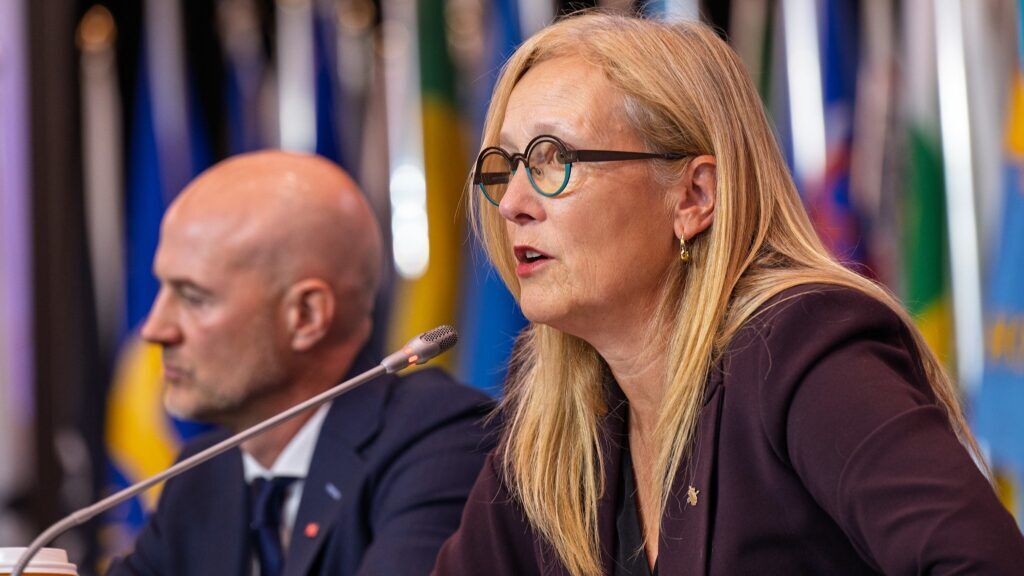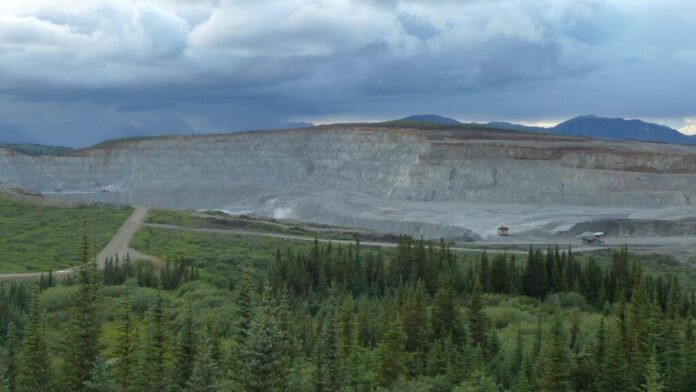The newly tabled federal budget promises to cut wasteful government spending while investing in “nation-building” initiatives.
The projects a $78 billion deficit this fiscal year, with deficits declining each year to reach $57 billion in 2029-2030.
Prime Minister Mark Carney announced the launch of the new Major Projects Office (MPO) earlier this year with the goal of fast-tracking projects deemed to be of national significance.
Budget 2025 includes almost $214 million over five years for the MPO and its Indigenous Advisory Council.
The initial list of projects to be considered for fast-tracking included LNG Canada Phase 2 in Kitimat and the Red Chris Mine expansion in the northwestern B.C.
“It’s heartening to see Ottawa’s continued commitment to the Critical Minerals Strategy, on top of their support for the Red Chris mine and phase two of LNG Canada,” said B.C. Finance Minister Brenda Bailey in a statement.
“We will continue advocating for B.C. to receive our fair share of Major Project Office funding as we grow our economy and for more B.C. projects to be expedited to grow our provincial and national economies,” said Bailey.
Major mining and critical minerals investments
The federal budget includes a $2 billion investment over five years in a Critical Minerals Sovereign Fund, which would make strategic investments in critical minerals projects and companies.
It also proposes $443 million over five years to support the development of innovative processing technologies, joint investments with allies in Canadian critical minerals projects and a new stockpiling mechanism to bolster national security.
Close to $372 million over four years would go toward a new First and Last Mile Fund to support the development of critical minerals projects and supply chains.
The budget also proposes an expanded tax credit eligibility for critical mineral exploration to include 12 additional minerals used in defence, semiconductors and energy technologies.
Mining makes up nearly 30 per cent of B.C.’s goods exports. The provincial government says B.C. produced an estimated $16.7 billion worth of mine products in 2024.
The Mining Association of British Columbia is welcoming the proposed supports for the industry.
“Budget 2025 is a solid step forward in positioning Canada and BC as a leading global supplier of the critical minerals and metals that our allies need. In BC, it will help unlock approximately $41 billion in new investment in critical mineral and mining projects across our province,” said President and CEO Michael Goehring.
The federal government said the Chris Mine expansion is expected to increase Canada’s annual copper production by over 15 per cent. It’s part of a proposed corridor in B.C.’s northwest that is being considered by the MPO as a development strategy for the sector.
Forestry and softwood sector supports
The budget includes some previously announced measures to support B.C.’s forestry industry, as the sector faces unprecedented U.S. tariffs on softwood lumber and wood products.
Those measures announced in August include $700 million in loan guarantees to help companies maintain and restructure their operations. An additional $500 million would go toward renewing and expanding existing Natural Resources Canada’s forestry programs focused on market and product diversification.
Carney’s government has said it will prioritize Canadian materials in construction and change federal procurement processes to require companies contracting with the federal government to source Canadian lumber.
U.S. President Donald Trump announced additional 10 per cent tariffs on softwood lumber in October, on top of the 35 per cent in anti-dumping and countervailing duties imposed in recent months.
Federal and provincial ministers attended a forestry summit on Monday, where they agreed to work together on further supports for the industry.
Tax breaks for LNG expansion
The second phase of the LNG Canada project is expected to double Canada’s capacity of liquified natural gas.
Eby has promoted LNG expansion as a way to increase sales to Asian markets and further diversify the sector amid the U.S.-Canada trade tensions.
The 2025 budget proposes tax incentives for the LNG sector, including bringing back accelerated capital cost allowances for low-carbon LNG facilities.
Infrastructure funding
The budget touts “significant” planned infrastructure investments. It includes $51 billion over 10 years for a new Build Communities Strong Fund to support provincial and municipal infrastructure projects.
Four B.C. community projects listed in the budget among those approved for federal funding. They are the Filipino Community and Cultural Centre in Metro Vancouver, White Rock Pier in White Rock, Newton Athletic Park in Surrey and Royal Athletic Park in Victoria.

Bailey also welcomed the federal government’s increase to defence spending, with $81.8 billion earmarked over the next five years.
“We look forward to working with Ottawa to ensure the benefits of increased defence spending are shared fairly with British Columbians,” she said.
However, Bailey said she was hoping to see more housing measures in the budget.
The budget outlines a $13 billion commitment for Build Canada Homes. The agency previously announced an initiative to build affordable housing on select federally owned sites, but B.C. sites were left out of the initial list.
The post What the 2025 federal budget means for BC: minerals, wood and LNG appeared first on AM 1150.




